
Buba: The Hidden Jewel of Guinea-Bissau
Nestled along the tranquil shores of the Rio Grande de Buba, Buba is a serene town in Guinea-Bissau that beckons travelers seeking an off-the-beaten-path adventure. This charming town offers a unique blend of natural beauty and cultural richness, making it an ideal destination for those looking to experience the authentic spirit of West Africa. Buba is renowned for its lush landscapes, with verdant forests and scenic rivers providing a picturesque backdrop for nature lovers. The town is a gateway to the Bijagós Archipelago, a UNESCO Biosphere Reserve known for its diverse ecosystems and wildlife. Visitors can embark on boat trips to explore these pristine islands, home to rare bird species, sea turtles, and traditional Bijagó communities. In the heart of Buba, the local markets buzz with activity, offering a glimpse into the daily lives of the friendly and hospitable residents. Here, tourists can shop for handcrafted souvenirs, vibrant textiles, and sample local delicacies such as fresh seafood and tropical fruits. The town's laid-back atmosphere and welcoming vibe make it a perfect spot to unwind and immerse oneself in the local culture.
Local tips in Buba
- Visit the local markets early in the morning for the freshest produce and unique handicrafts.
- Hire a local guide for boat trips to the Bijagós Archipelago to fully appreciate the biodiversity and cultural heritage.
- Pack light and breathable clothing as the climate can be hot and humid.
- Respect local customs and traditions, especially when visiting Bijagó communities.
- Ensure you have local currency (West African CFA franc) as card payments are not widely accepted.
Buba: The Hidden Jewel of Guinea-Bissau
Nestled along the tranquil shores of the Rio Grande de Buba, Buba is a serene town in Guinea-Bissau that beckons travelers seeking an off-the-beaten-path adventure. This charming town offers a unique blend of natural beauty and cultural richness, making it an ideal destination for those looking to experience the authentic spirit of West Africa. Buba is renowned for its lush landscapes, with verdant forests and scenic rivers providing a picturesque backdrop for nature lovers. The town is a gateway to the Bijagós Archipelago, a UNESCO Biosphere Reserve known for its diverse ecosystems and wildlife. Visitors can embark on boat trips to explore these pristine islands, home to rare bird species, sea turtles, and traditional Bijagó communities. In the heart of Buba, the local markets buzz with activity, offering a glimpse into the daily lives of the friendly and hospitable residents. Here, tourists can shop for handcrafted souvenirs, vibrant textiles, and sample local delicacies such as fresh seafood and tropical fruits. The town's laid-back atmosphere and welcoming vibe make it a perfect spot to unwind and immerse oneself in the local culture.
When is the best time to go to Buba?
Iconic landmarks you can’t miss
Dunia Hotel Bissau (Azalaï Hotel 24 de Setembro)
Dunia Hotel Bissau: Your Gateway to Comfort and Cultural Exploration in the Heart of Guinea-Bissau.

Chapa de Bisaau
Discover the vibrant local culture at Chapa de Bisaau, the essential supermarket in Bissau, Guinea-Bissau, showcasing fresh produce and local delicacies.
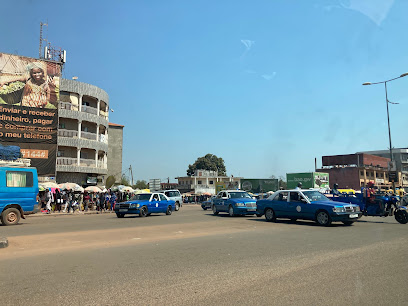
Ponta Anchaca
Experience the enchanting beauty of Ponta Anchaca in Guinea-Bissau, a serene hotel in the stunning Bijagos Archipelago, perfect for relaxation and adventure.

Empire Square
Explore Empire Square in Bissau, a serene memorial park rich in culture and history, perfect for relaxation and local experiences.
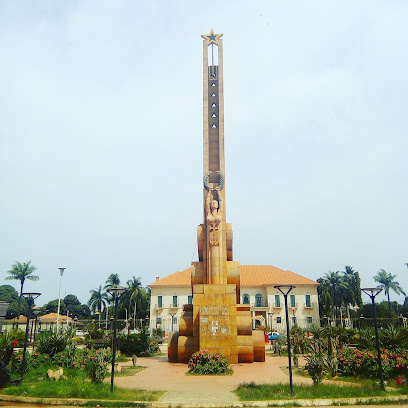
Praca Titina Silá
Explore Praca Titina Silá - a tranquil garden oasis in Bissau, perfect for relaxation and experiencing local culture amidst vibrant flora.
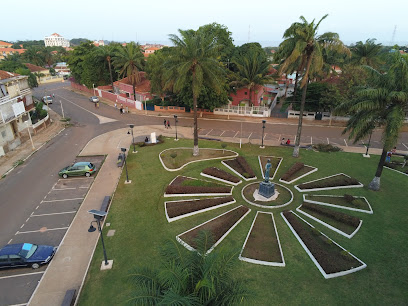
Cufada Lagoons Natural Park
Discover the tranquil beauty and rich biodiversity of Cufada Lagoons Natural Park, a hidden gem in Guinea-Bissau perfect for nature lovers and adventurers.
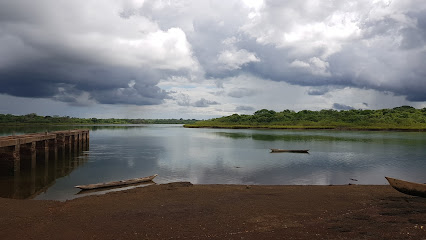
CONSULMAR BISSAU
Explore the stunning waterways of Guinea-Bissau with CONSULMAR BISSAU, your gateway to unforgettable boat tours and rentals in Bissau.
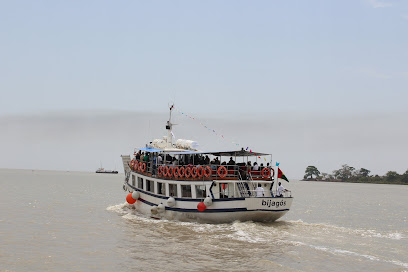
Monumento aos Heróis da Independência
Explore the Monument to the Heroes of Independence, a symbol of resilience and national pride in Bissau, Guinea-Bissau's historical heart.
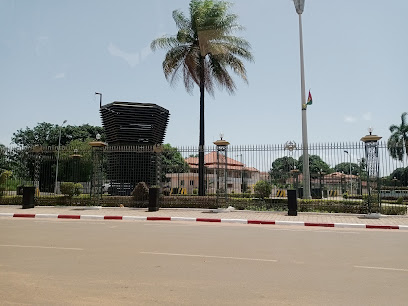
Bubaque
Explore Bubaque Island, Guinea-Bissau: A serene paradise with stunning beaches, rich culture, and diverse wildlife awaits your discovery.
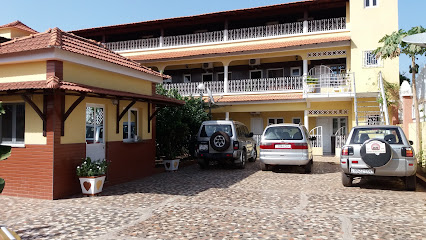
Fort São José da Amura
Explore the rich colonial history and stunning vistas at Fort São José da Amura in Bissau, Guinea-Bissau, a must-visit destination for every traveler.
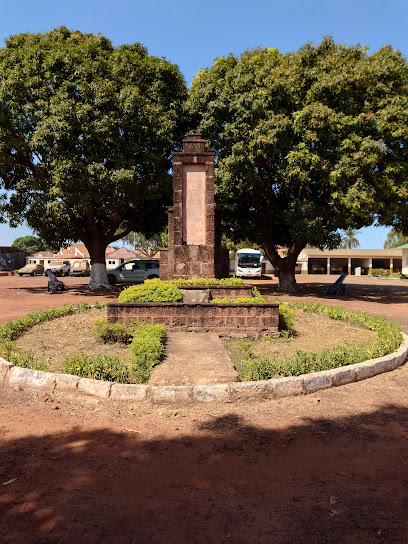
Ilha de Bubaque
Explore the serene beauty and rich culture of Ilha de Bubaque, an enchanting island in Guinea-Bissau, perfect for relaxation and adventure seekers.
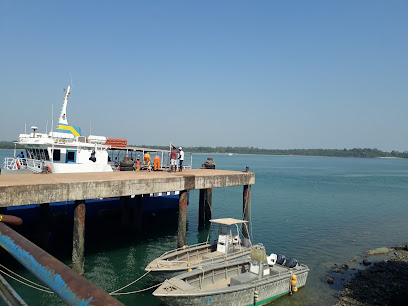
Rio Grande de Buba
Discover the enchanting beauty of Rio Grande de Buba, a hidden gem in Guinea-Bissau, where nature and adventure await every traveler.
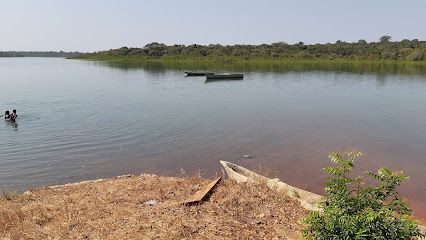
National Assembly of Guinea-Bissau
Explore the National Assembly of Guinea-Bissau, a vital symbol of democracy in Bissau, revealing the nation’s political narrative and architectural beauty.
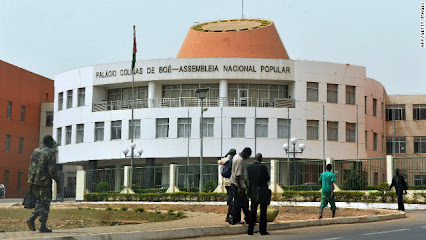
Bubaque Island Hotel
Discover the beauty of Bubaque Island Hotel, your serene escape in the Bijagos Archipelago, where nature meets culture in Guinea-Bissau.
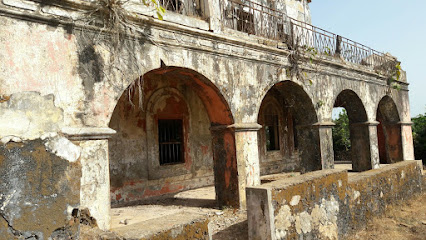
Fort Cacheu
Discover the historical significance and breathtaking views of Fort Cacheu, a 17th-century fortress in Cacheu, Guinea-Bissau, rich in culture and nature.
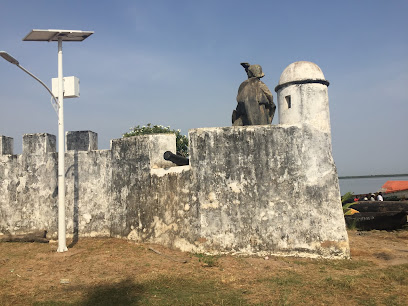
Essential places to dine
Restaurante Papa Loca
Experience authentic Guinea-Bissauan cuisine at Restaurante Papa Loca in Bissau – where every meal tells a story.
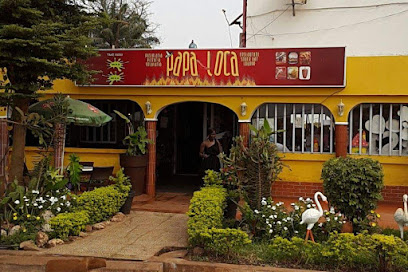
O Bistro
Experience authentic Italian cuisine at O Bistro in Bissau—where tradition meets taste in every delicious bite.
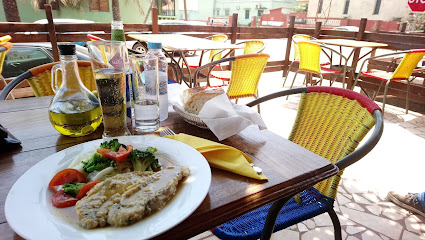
Coqueiros Bissau
Experience authentic Guinea-Bissauan cuisine at Coqueiros Bissau, where every dish tells a story steeped in culture and flavor.
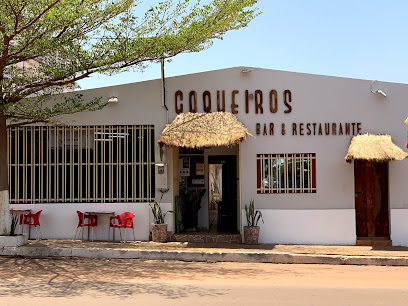
Lamin Lodge
Discover serenity at Lamin Lodge: your gateway to breathtaking boat adventures and authentic Gambian dining experiences.
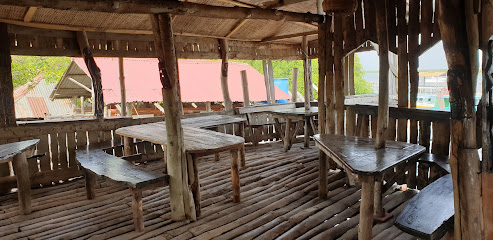
Bakotu
Discover relaxation and local culture at Bakotu Hotel in Serrekunda – your gateway to Gambian hospitality.

KHARAGNE LOWE FINANCIAL COMPANY
Discover reliable banking and currency exchange services at Kharagne Lowe Financial Company in Kololi, Gambia – Your gateway to seamless travel finance.

A Padeira Africana
Experience authentic African cuisine at A Padeira Africana in Bissau - where rich flavors meet warm hospitality.
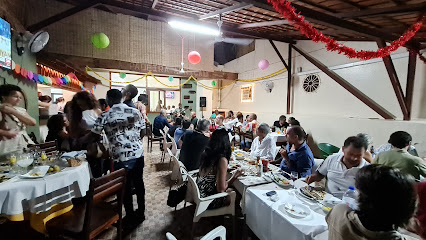
Almagui Restaurante & Apart-Hotel
Discover authentic flavors and comfortable stays at Almagui Restaurante & Apart-Hotel in vibrant Bissau, Guinea-Bissau.
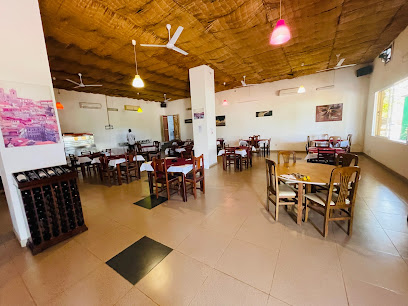
Gã Mela
Discover authentic Guinea-Bissauan flavors at Gã Mela in Bissau – where every meal tells a story.
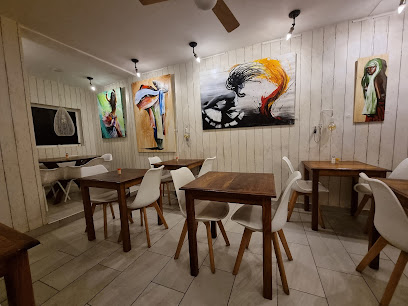
Marisqueira de Safim
Discover authentic seafood at Marisqueira de Safim – where Guinea-Bissau's coastal flavors come alive in a welcoming setting.
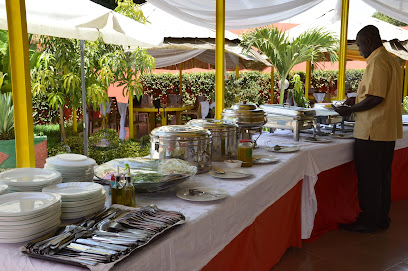
Restaurante Ali Baba
Discover the rich flavors of Lebanon at Restaurante Ali Baba in Bissau - a delightful culinary experience awaits.
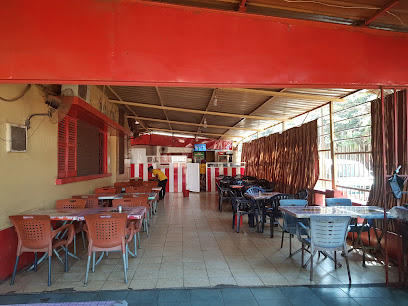
Cabana Lodge Resort Haw Ba Sanyang Beach
Discover tranquility at Cabana Lodge Resort Haw Ba Sanyang Beach – your perfect getaway in Gambia's coastal paradise.

Restaurant Dom Luis
Experience authentic Guinea-Bissauan flavors at Restaurant Dom Luis in Bissau – a culinary journey awaits you.
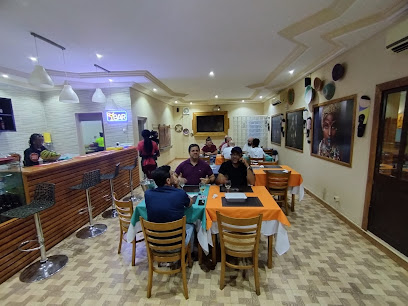
Hotel Avó Anisa
Discover tranquility at Hotel Avó Anisa - your perfect getaway in scenic Varela, Guinea-Bissau.
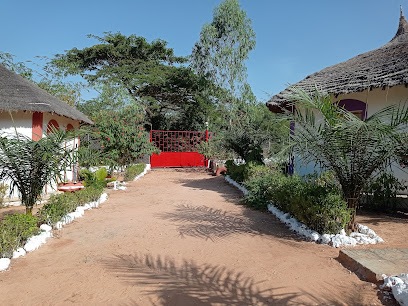
Pousada Bela Vista
Experience authentic Guinea-Bissau hospitality at Pousada Bela Vista in Buba – your serene retreat amidst vibrant culture.
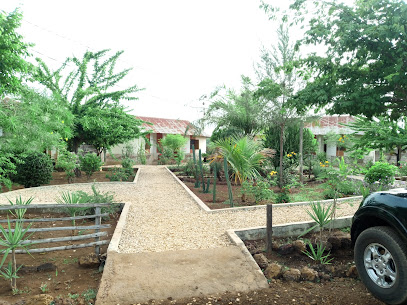
Markets, malls and hidden boutiques
Santy Comercial
Explore the vibrant shopping experience at Santy Comercial, Bissau's top supermarket for fresh produce and local delicacies.
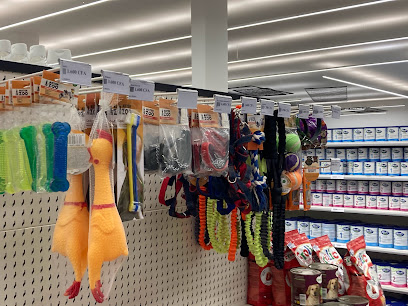
Supermercado Darling
Explore local flavors and essentials at Supermercado Darling, the prime supermarket destination in Bissau, Guinea-Bissau.
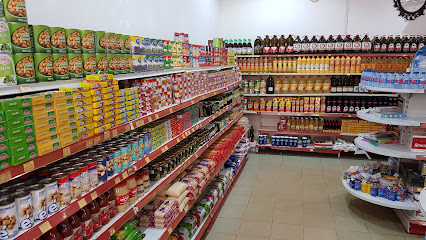
Ponta Anchaca
Experience tranquility at Ponta Anchaca, a stunning hotel in the beautiful Bijagos Archipelago, where nature and adventure await.

Empire Square
Explore the tranquil beauty and rich history of Empire Square, a memorial park in Bissau, Guinea-Bissau, perfect for reflection and cultural immersion.
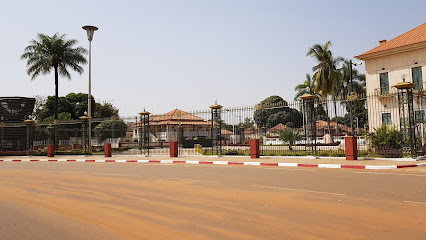
Cufada Lagoons Natural Park
Explore the stunning Cufada Lagoons Natural Park in Guinea-Bissau, a paradise for nature lovers, birdwatchers, and adventure seekers.
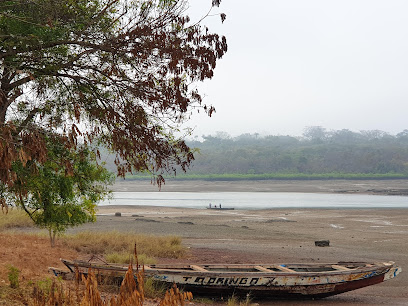
Loja Americana
Explore Loja Americana, Bissau's premier electronics store, featuring the latest gadgets and exceptional customer service in a vibrant shopping atmosphere.
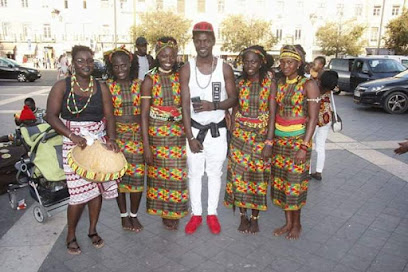
Hôtel Cajou Lodge
Experience the tranquil charm of Hôtel Cajou Lodge in Bubaque, where comfort meets nature in a stunning tropical setting.

Fort São José da Amura
Explore the rich history and stunning views at Fort São José da Amura, a captivating castle in Bissau, Guinea-Bissau.
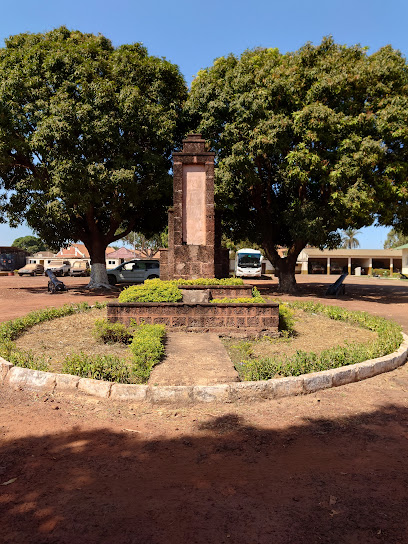
Centro Artístico Juvenil
Discover the vibrant world of Guinea-Bissau's handicrafts at Centro Artístico Juvenil, where art and culture come alive.

Rio Grande de Buba
Discover the tranquil beauty of Rio Grande de Buba, a stunning river in Guinea-Bissau, perfect for nature lovers and adventure seekers.
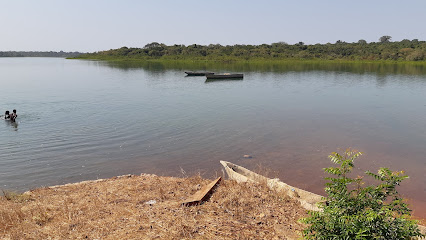
Bubaque Island Hotel
Experience the serene beauty of Bubaque Island Hotel, a tropical haven in Guinea-Bissau's Bijagos Islands, perfect for relaxation and adventure.
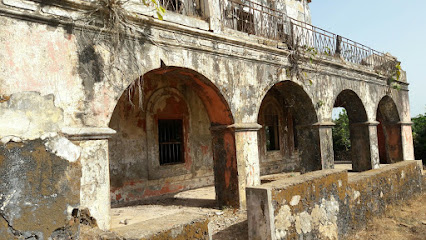
غينيا بيساو
Explore the vibrant culture and stunning landscapes of Guinea-Bissau, a hidden gem in West Africa with unforgettable experiences awaiting every traveler.

Mercado de Bandim
Explore the Mercado de Bandim in Bissau, a vibrant grocery store showcasing local produce, spices, and crafts for an authentic cultural experience.
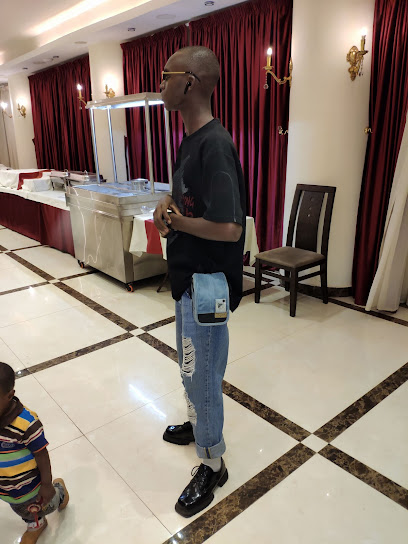
Bissau Logistics
Discover local flavors and unique crafts at Bissau Logistics, a must-visit general store in the heart of Bissau, Guinea-Bissau.

Boutique Salima
Explore Boutique Salima in Bissau for unique women's clothing that blends local style with modern trends, creating unforgettable shopping experiences.
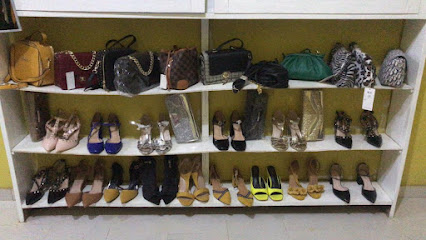
Essential bars & hidden hideouts
Restaurante Papa Loca
Experience the best of Guinea-Bissau's local cuisine at Restaurante Papa Loca, a vibrant eatery in Bissau perfect for food lovers.
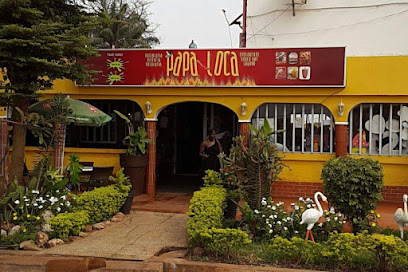
O Bistro
Savor the authentic flavors of Italy at O Bistro, Bissau's premier Italian restaurant, renowned for its pizzas, pastas, and inviting atmosphere.
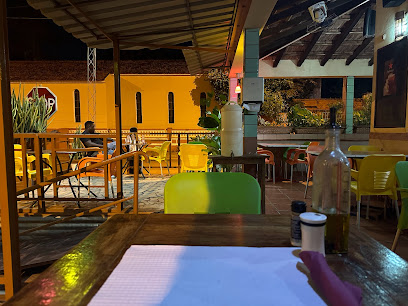
Coqueiros Bissau
Experience the rich flavors of Guinea-Bissau at Coqueiros Bissau, a top-rated restaurant offering local and international dishes in a welcoming atmosphere.
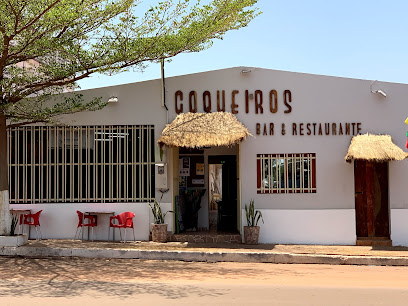
A Padeira Africana
Experience authentic African cuisine at A Padeira Africana, a vibrant restaurant in Bissau offering a delightful culinary journey.
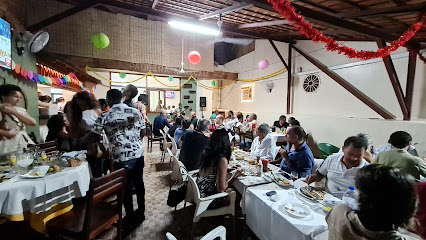
Almagui Restaurante & Apart-Hotel
Experience the authentic flavors of Guinea-Bissau at Almagui Restaurante & Apart-Hotel, where comfort and culinary delights await.
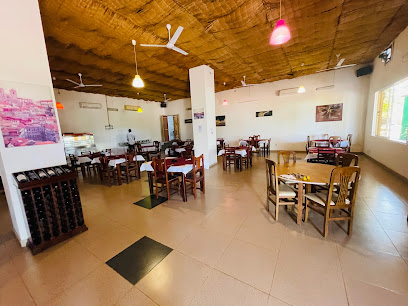
Bambu
Experience the vibrant nightlife of Bissau at Bambu, where music and dance create unforgettable memories.
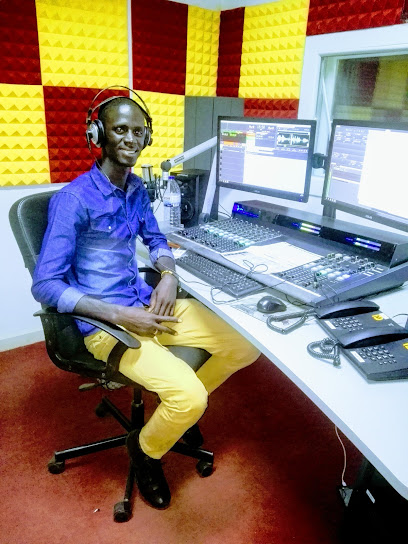
Hôtel Kasa Afrikana
Discover the charm of Bubaque at Hôtel Kasa Afrikana, where comfort meets local culture in a tropical paradise.

BOB FISHING CLUB BIJAGOS
Experience the serene beauty and fishing adventure at Bob Fishing Club in the stunning Bijagos Archipelago, Guinea-Bissau.

Hôtel Cajou Lodge
Discover the serene charm of Hôtel Cajou Lodge in Bubaque, Guinea-Bissau, your perfect retreat amid stunning natural beauty.

Pousada Bela Vista
Experience tranquility and local charm at Pousada Bela Vista in Buba, the perfect getaway for travelers seeking relaxation in Guinea-Bissau.
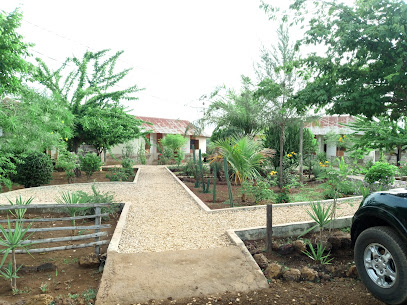
Rio Grande de Buba
Discover the serene beauty of Rio Grande de Buba, a picturesque river in Guinea-Bissau perfect for nature lovers and adventure seekers.
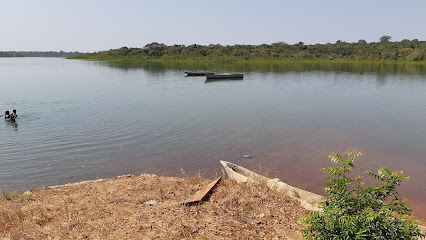
Bubaque Island Hotel
Experience the serene beauty of Bubaque Island Hotel, a perfect getaway in the stunning Bijagos Islands of Guinea-Bissau.
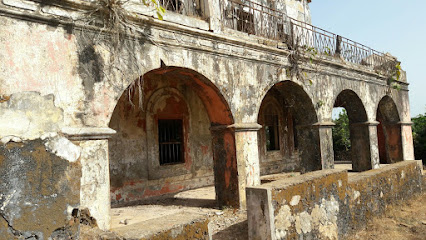
Discoteca TABANKA
Discover the vibrant nightlife of Bissau at Discoteca TABANKA, a premier night club that offers an unforgettable experience of music, dance, and local culture.
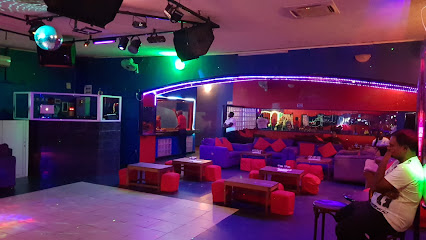
Porto de Bubaque
Experience the vibrant life and stunning beauty of Porto de Bubaque, your gateway to the breathtaking Bijagós Archipelago in Guinea-Bissau.
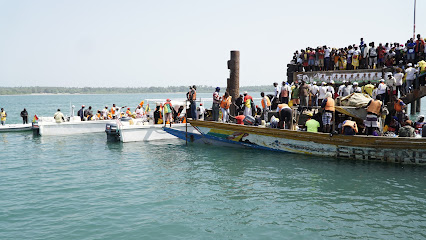
Local Phrases
-
- HelloOlá
[oh-lah] - GoodbyeAdeus
[ah-deh-oos] - YesSim
[seem] - NoNão
[now] - Please/You're welcomePor favor
[pohr fah-vohr] - Thank youObrigado/Obrigada
[oh-bree-gah-doo/oh-bree-gah-dah] - Excuse me/SorryCom licença/Desculpe
[kohm lee-sayn-sah/dehs-kool-pay] - How are you?Como está?
[koh-moh ehs-tah] - Fine. And you?Bem. E você?
[behn/eh voh-seh] - Do you speak English?Você fala inglês?
[voh-seh fah-lah een-glehsh] - I don't understandNão entendo
[now ehn-tehn-doo]
- HelloOlá
-
- I'd like to see the menu, pleaseGostaria de ver o menu, por favor
[goh-stah-ree-ah deh vehr oo meh-noo/pohr fah-vohr] - I don't eat meatNão como carne
[now koh-moh kahr-neh] - Cheers!Saúde!
[sow-deh] - I would like to pay, pleaseGostaria de pagar, por favor
[goh-stah-ree-ah deh pah-gahr/pohr fah-vohr]
- I'd like to see the menu, pleaseGostaria de ver o menu, por favor
-
- Help!Socorro!
[soh-koh-roh] - Go away!Vá embora!
[vah ehm-boh-rah] - Call the Police!Chame a polícia!
[shah-meh ah poh-lee-see-ah] - Call a doctor!Chame um médico!
[shah-meh oom meh-dee-koh] - I'm lostEstou perdido
[eh-stoh pehr-dee-doo] - I'm illEstou doente
[eh-stoh doo-ehn-teh]
- Help!Socorro!
-
- I'd like to buy...Gostaria de comprar...
[goh-stah-ree-ah deh kohm-prahr] - I'm just lookingEstou só a olhar
[eh-stoh soh ah oh-lahr] - How much is it?Quanto custa?
[kwan-too koosh-tah] - That's too expensiveIsso é muito caro
[ee-soh eh moo-ee-toh kahr-oo] - Can you lower the price?Pode baixar o preço?
[poh-deh bahy-shahr oo preh-soh]
- I'd like to buy...Gostaria de comprar...
-
- What time is it?Que horas são?
[keh oh-rahz sah-oh] - It's one o'clockÉ uma hora
[eh oo-mah oh-rah] - Half past (10)Meia hora (10)
[may-ah oh-rah (dees)] - MorningManhã
[mah-nyah] - AfternoonTarde
[tahr-deh] - EveningNoite
[noy-tay] - YesterdayOntem
[ohn-tehm] - TodayHoje
[oh-zhay] - TomorrowAmanhã
[ah-mahn-yah] - 1Um
[oom] - 2Dois
[doysh] - 3Três
[trehs] - 4Quatro
[kwah-troh] - 5Cinco
[seen-koh] - 6Seis
[saysh] - 7Sete
[seh-teh] - 8Oito
[oy-toh] - 9Nove
[noh-veh] - 10Dez
[dehs]
- What time is it?Que horas são?
-
- Where's a/the...?Onde fica o/a...?
[ohn-deh fee-kah oh/ah] - What's the address?Qual é o endereço?
[kwahl eh oh ehn-deh-reh-soh] - Can you show me (on the map)?Pode mostrar-me (no mapa)?
[poh-deh moh-strahr-meh (noo mah-pah)] - When's the next (bus)?Quando é o próximo (autocarro)?
[kwan-doo eh oh proh-ksee-moh (ow-toh-kah-roo)] - A ticket (to ....)Um bilhete (para ....)
[oom beel-yeh-teh (pah-rah)]
- Where's a/the...?Onde fica o/a...?
History of Buba
-
Buba, located in the Quinara region of Guinea-Bissau, traces its origins back to indigenous tribes who settled in the area due to its fertile lands and access to the Rio Grande de Buba. These early inhabitants contributed to the region's agricultural foundation, cultivating crops and fishing in the river.
-
During the 15th century, Portuguese explorers arrived in Guinea-Bissau, including the area of Buba. The Portuguese established trading posts and utilized the region's natural resources, which led to significant cultural exchanges and the introduction of European goods and practices. Buba became part of the larger network of Portuguese colonial territories.
-
In the mid-20th century, Buba, like the rest of Guinea-Bissau, became a focal point in the struggle for independence from Portuguese colonial rule. The African Party for the Independence of Guinea and Cape Verde (PAIGC) led the fight, which culminated in Guinea-Bissau's declaration of independence on September 24, 1973. Buba played a strategic role in this conflict, serving as a base for revolutionary activities.
-
Following independence, Buba and the surrounding region faced challenges in rebuilding and developing infrastructure. Efforts were made to enhance education, healthcare, and transportation. The town's location along the Rio Grande de Buba has continued to support its economic activities, particularly in agriculture and fishing.
-
Buba is known for its rich cultural heritage, deeply rooted in the traditions of the indigenous peoples and influenced by Portuguese colonial history. The town hosts various festivals and celebrations that reflect its diverse cultural fabric. Traditional music, dance, and artisanal crafts play a significant role in the community's cultural expression.
-
In recent years, Buba has become a destination for ecotourism, attracting visitors with its stunning natural landscapes, including mangroves, forests, and the Rio Grande de Buba. Conservation efforts aim to protect the area's biodiversity while promoting sustainable tourism that benefits the local economy.
Buba Essentials
-
Buba is located in the Quinara region of Guinea-Bissau. The nearest international airport is Osvaldo Vieira International Airport in Bissau, approximately 120 kilometers away. From Bissau, you can take a taxi or a minibus (known locally as 'toca-toca') to Buba. The journey typically takes around 3 to 4 hours by road, depending on the condition of the roads and traffic.
-
Within Buba, local transportation options include taxis and minibuses ('toca-toca'). Taxis are relatively inexpensive and are the most convenient way to get around. For longer trips or exploring nearby areas, renting a car could be a viable option. However, be mindful that road conditions can vary, and driving at night is not recommended due to poor lighting and road quality.
-
The official currency in Guinea-Bissau is the West African CFA franc (XOF). Credit cards are not widely accepted, so it is advisable to carry enough cash for your expenses. ATMs are limited and may not always be reliable, so consider withdrawing sufficient cash in Bissau before traveling to Buba. Larger hotels and some restaurants may accept credit cards, but this is not guaranteed.
-
Buba is generally a safe destination, but like any travel destination, it is important to take standard precautions. Avoid walking alone at night in unfamiliar areas and be cautious with your belongings in crowded places. There are no specific high-crime areas known to target tourists, but it is always best to stay vigilant and aware of your surroundings.
-
In case of emergency, dial 112 for immediate assistance. Buba has a local police station and basic medical facilities. For serious medical issues, it is advisable to head to a larger city like Bissau where better healthcare services are available. It is strongly recommended to have travel insurance that covers medical emergencies. Pharmacies in Buba can provide over-the-counter medications for minor health concerns.
-
Fashion: Do dress modestly, especially when visiting religious or rural areas. Avoid wearing overly revealing clothing. Religion: Do respect local customs and traditions. Always ask for permission before taking photos of people or religious sites. Public Transport: Do be polite and offer seats to elderly passengers. Don’t eat or drink on public transport. Greetings: Do greet people with a handshake and a smile. It is customary to ask about one’s well-being before starting a conversation. Eating & Drinking: Do try local dishes and accept food offerings graciously. Don't refuse hospitality, as it is considered impolite.
-
To experience Buba like a local, visit the local markets where you can find fresh produce and traditional goods. Engage with locals, as they are often friendly and willing to share stories about the area’s history and culture. Don’t miss visiting the nearby Cufada Lagoons Natural Park, a beautiful spot for bird watching and enjoying the natural scenery. Participating in local festivals and events can also provide a deeper understanding of the culture and traditions of the region.
Trending Landmark in Buba
-
Dunia Hotel Bissau (Azalaï Hotel 24 de Setembro)
-
Chapa de Bisaau
-
Ponta Anchaca
-
Empire Square
-
Praca Titina Silá
-
Cufada Lagoons Natural Park
-
CONSULMAR BISSAU
-
Monumento aos Heróis da Independência
-
Bubaque
-
Fort São José da Amura
-
Ilha de Bubaque
-
Rio Grande de Buba
-
National Assembly of Guinea-Bissau
-
Bubaque Island Hotel
-
Fort Cacheu
Nearby Cities to Buba
-
Things To Do in Quebo
-
Things To Do in Bissau
-
Things To Do in Canchungo
-
Things To Do in Soma
-
Things To Do in Janjanbureh
-
Things To Do in Farafenni
-
Things To Do in Brikama
-
Things To Do in Gunjur
-
Things To Do in Lamin
-
Things To Do in Banjul
-
Things To Do in Conakry
-
Things To Do in Serekunda
-
Things To Do in Serrekunda
-
Things To Do in Bakau
-
Things To Do in Kaolack








